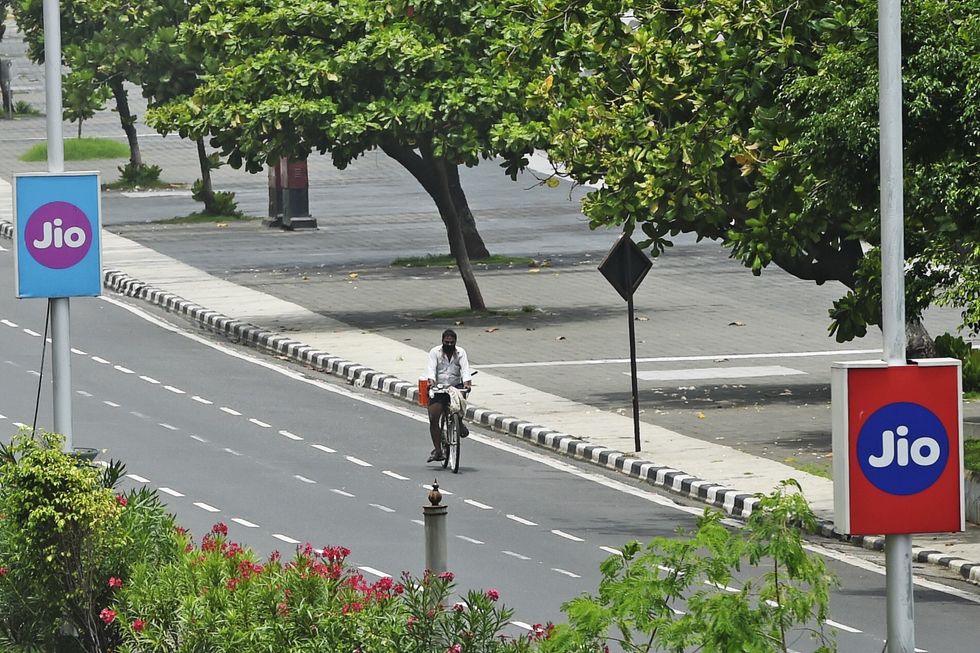MUKESH Ambani, the chairman of Reliance Industries Limited and the richest man in Asia, is never far from making headlines. The man has already made a big impact in India’s telecom connectivity and now he is building an international submarine cable network. Through this, Ambani wants to place India at the centre of the international underseas cable hub to meet its fast-growing demand for data.
Last month, Reliance Industries said its telecom subsidiary Reliance Jio Infocomm is constructing the world’s biggest international submarine cable system which will be centred around India. In a statement then, Reliance Jio President Mathew Oommen said: “Implementing these critical initiatives in the shadow of a global pandemic is a challenge, but the ongoing pandemic has only accelerated the digital transformation and the necessity of high-performance global connectivity for the delivery of a richer experience to enterprises and consumers.” The statement added that Reliance Jio is currently working with several global partners to deploy two next-generation cables to accommodate the extraordinary surge in India's data demand.

A submarine cable system means an integrated channel of cables that are laid on the ocean surface. These cables help in transferring data from one location in the land to another. The network includes cables, hardware components and other infrastructure facilitating communication. The lines under the water that cross the ocean floors are the global internet supply’s backbone, supplying almost the entire world traffic, including most of our calls on the telephone. The lines can withstand earthquakes and heavy ocean currents and have a general lifespan of 25 years. With time, they are also turning out into key strategic assets.
Jio's two submarine cable systems
In January 2020, ET Telecom reported that Jio would deploy two submarine cable systems connecting Singapore and Europe, taking high-bandwidth connectivity from the United States’ western and eastern coasts to help internet users in India, who are growing in high numbers, high-speed data.
The Telecom report cited a source in the industry to say the two submarine systems would provide direct connectivity to the top content hubs worldwide and the deployment would boost India’s data availability.
The two cables Jio are laying are India-Asia-Xpress and India-Europe-Xpress. The first is expected to be ready by 2023 and the latter by 2024.





 NS-31 astronauts celebrate at the crew capsule after a successful flight to spaceBlue Origin
NS-31 astronauts celebrate at the crew capsule after a successful flight to spaceBlue Origin Astronaut Dr. Richard Scott during training at Launch Site OneBlue Origin
Astronaut Dr. Richard Scott during training at Launch Site OneBlue Origin New Shepard booster separates from crew capsule during NS-29Blue Origin
New Shepard booster separates from crew capsule during NS-29Blue Origin Astronaut Gayle King celebrates a successful mission to spaceBlue Origin
Astronaut Gayle King celebrates a successful mission to spaceBlue Origin Astronaut Jesús Calleja at apogeeBlue Origin
Astronaut Jesús Calleja at apogeeBlue Origin Astronaut Elaine Chia Hyde at apogeeBlue Origin
Astronaut Elaine Chia Hyde at apogeeBlue Origin Astronaut Elaine Chia Hyde during training at Launch Site OneBlue Origin
Astronaut Elaine Chia Hyde during training at Launch Site OneBlue Origin New Shepard lifts off from Launch Site One Blue Origin
New Shepard lifts off from Launch Site One Blue Origin The New Shepard booster nears touchdown during NS-29Blue Origin
The New Shepard booster nears touchdown during NS-29Blue Origin New Shepard on the launch pad prior to NS-31Blue Origin
New Shepard on the launch pad prior to NS-31Blue Origin













 An aerial view of the British Steel Scunthorpe site on September 13, 2024. (Photo: Getty Images)
An aerial view of the British Steel Scunthorpe site on September 13, 2024. (Photo: Getty Images)